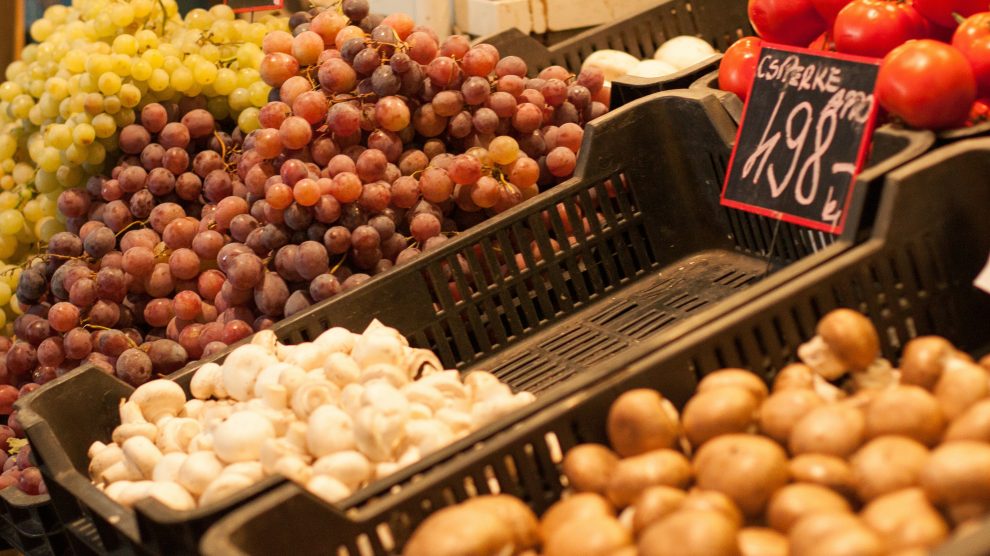Can the traditional diets of Central Europe be made healthier and more sustainable without compromising on taste or increasing costs?
What might a healthy, sustainable diet in Central Europe look like? A major new report from the WWF offers a few clues.
Dubbed Livewell, the approach was originally developed by WWF United Kingdom to illustrate what an achievable healthy, sustainable diet can look like. Its objective is not to create an exact eating plan, but to change basic dietary patterns in accordance to specific individual preferences and personal situations.
- Ensuring food security in Europe and Central Asia
- Seeds of change: Modernisation and sustainability in CEE’s agricultural sector
- Green uprising: Vertical farming in emerging Europe
The Livewell approach for Central Europe is based on a study conducted by Blonk Consultants, commissioned by WWF-CEE. Through this study, WWF-CEE investigated what a sustainable diet would look like in the context of Central Europe.
The diet of adults in Czechia, Hungary and Slovakia were optimised to reduce their carbon footprint while meeting nutrient recommendations, not increasing in price and staying as close to the current diet as possible.
Additionally, they were optimised to meet the climate target needed to limit global warming to 1.5°C above pre-industrial levels by 2030.
No, Central Europeans will not have to give up meat
Current diets in all three countries fall short of meeting national nutritional guidelines. Only a minority of Czechs, Slovaks and Hungarians eat the recommended five portions of vegetables and fruit a day.
At the same time, the carbon footprint of current Czech, Slovak and Hungarian diets is 5.29/4.51/4.23 kg of carbon dioxide equivalent (CO2e) per person per day. This far exceeds the thresholds for limiting global warming to 1.5°C and achieving net zero emissions by 2050.
The diet suggested by WWF Livewell is plant-rich, but flexible and made up of a wide variety of foods. It emphasises whole foods and recommends minimising consumption of foods high in fat, salt, and sugar and ultra-processed foods.
The Livewell diet also recommends a substantial increase in the consumption of legumes and pulses in comparison with the current diet.
Complete removal of processed meat from the diet is also strongly recommended, although Livewell recommends an increase in egg consumption as they deliver important nutrients for a relatively lower environmental impact.
“Humanity is facing a triple challenge: how to ensure food and nutrition security for all, while keeping global warming to 1.5°C and reversing nature loss. The food we eat and the input-intensive way it is produced are driving nature loss, polluting waterways, depleting soils, and undermining food and nutrition security,” says Irene Lucius, regional conservation director at WWF-CEE.
“The health of the planet is intimately connected with our own. Prioritising plant-based meals while moderating our meat consumption is critical both for our well-being and that of our planet.”
Available, affordable, accessible
The authors of the report emphasise the fact that diets are not just a matter of personal preferences and individual choice.
Food choices are deeply influenced by what is available, affordable, and accessible, as well as how it is marketed.
The most effective policy changes are those that target the food environment, ensuring every citizen has access to and can afford healthy, sustainable food rather than relying solely on individual choice.
WWF’s experts believe that food-related businesses can implement several measures to enable more sustainable choices.
These include rebalancing product pricing so that healthier, more sustainable products become the most affordable options for customers; setting ambitious targets to increase sales of plant proteins; establishing a system for measuring sales of animal/plant proteins along with carbon footprint; and publicising the plant/animal proportion of protein sales broken down on an annual basis.
“Healthy, sustainable food should be accessible and affordable for everyone, both now and in the future,” says Lenka Fryčová, sustainability expert at WWF-CEE and a leading author of the report.
“Governments and businesses have a vital role to play in enabling and encouraging a shift to healthy, sustainable diets, especially during today’s cost-of-living crisis.
“Meanwhile, let’s not forget that every little change matters. We, as individuals, also have the power and responsibility to contribute to this shift. There is no need for anyone to take drastic steps; what is needed is for large numbers of people to take a series of small steps.”
Photo by Tetiana Shyshkina on Unsplash
Unlike many news and information platforms, Emerging Europe is free to read, and always will be. There is no paywall here. We are independent, not affiliated with nor representing any political party or business organisation. We want the very best for emerging Europe, nothing more, nothing less. Your support will help us continue to spread the word about this amazing region.
You can contribute here. Thank you.


